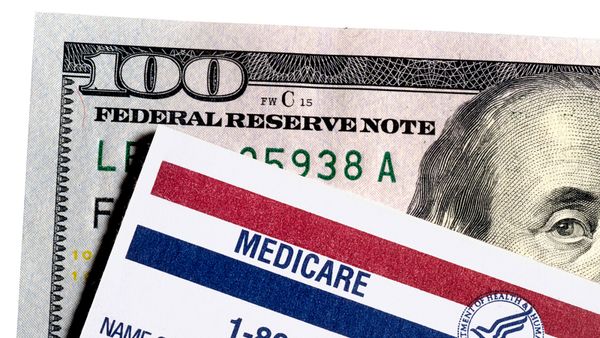When Elizabeth Clark's father developed Parkinson's disease she took on the role of part-time caregiver, with her mom handling many of the responsibilities. Shortly after he passed away, however, her mother's cognitive decline symptoms worsened dramatically. This time, the caregiver role fell squarely on the shoulders of Clark, an only child. Over the past few years she's become a crash-course expert in the ins and outs of paying for the costs of old age, including Medicare, private insurance and prescription supplements. "I could write a book on it, probably," says the Tucker, Georgia-based high school teacher.
One of the most difficult decisions Clark has had to make involved removing her mother, Paula, age 78, from her longtime home and placing her in a memory care facility once it became medically apparent that she couldn't live unsupervised anymore. "You have to go through hospitalization to be officially diagnosed and then to be accepted at a facility," she explains.
Fortunately for Clark, her parents prepared for such circumstances. "My parents worked their whole lives, saved their money," she says. Bills are paid with her mother's retirement income and social security. A portion of the memory care facility fees are also paid by a supplemental Veterans Affairs (VA) payment, since Clark's father served in the United States Navy. Still, the fees are enough to make even the most committed saver quake – Paula's monthly prescription costs run about $200 per month (and that's with an AARP prescription supplemental plan that pays a large chunk), and the memory care facility costs are a whopping $4,300 per month. (The nationwide average is even higher -- at $5,000, though it varies by state.) Then, of course there are the monthly health insurance premiums that are deducted automatically. Paula's income sources cover most of the regular monthly costs, but it's also the norm for Clark to pay out a couple hundred a month from savings to cover extra, unexpected fees.
The best months run like clockwork. But inevitably, extras happen, and that's where it really gets tricky. Paula has had three serious hospitalizations recently, one for a fall and two for pneumonia. Medicare Part A and B, which she subscribes to, covered all the in-patient medical costs. However, once she was discharged and returned to the memory care facility Paula still required constant supervision for her own safety. Such a service is not included in the facility fee, and Medicare doesn't pay for it.
"Nobody watches her, so I'm having to hire people (certified nursing assistants, or CNAs) to come watch her while I'm at work," Clark says. "I've already decided when this happens again I will take my pajamas and work clothes and do it myself." It's easy to understand why she'd go this route next time, as each post-hospitalization period required two weeks' worth of round-the-clock care, at about $800 per week. Do this too often and a person's savings will dwindle pretty quickly.


